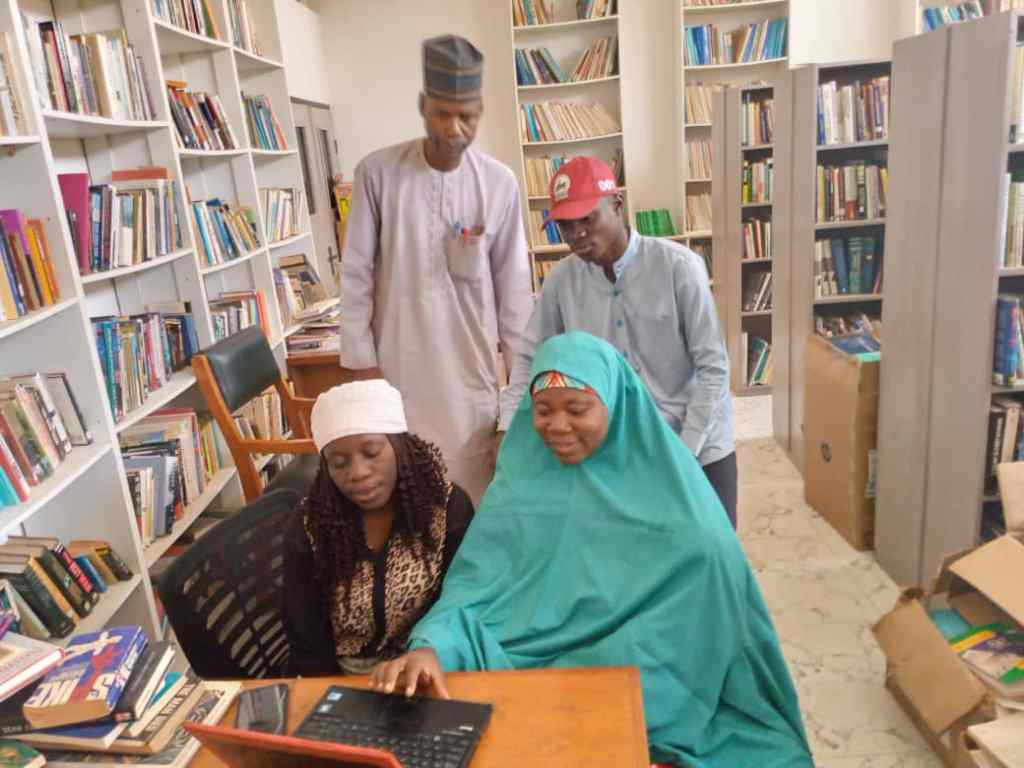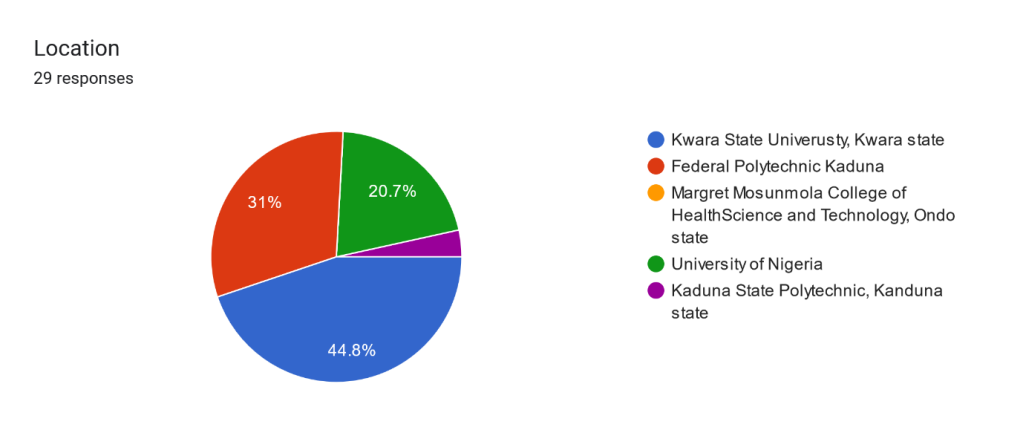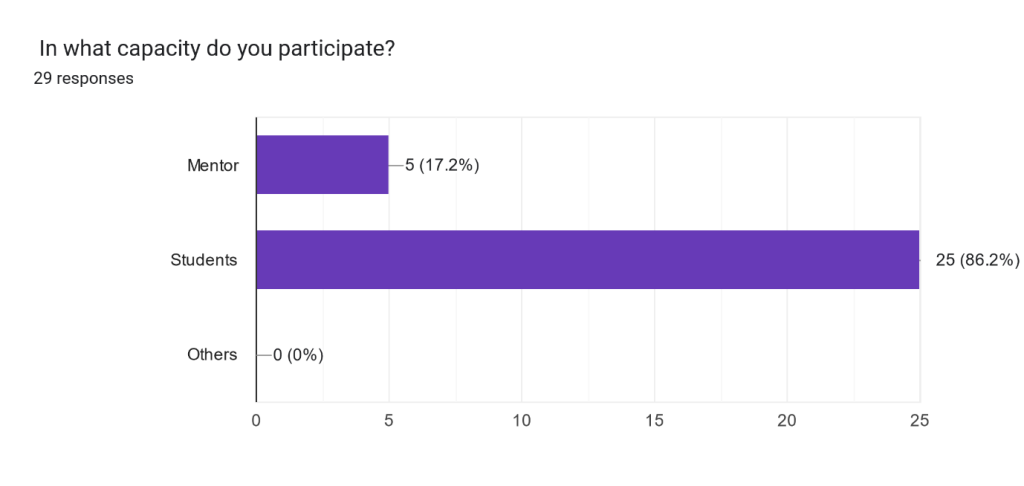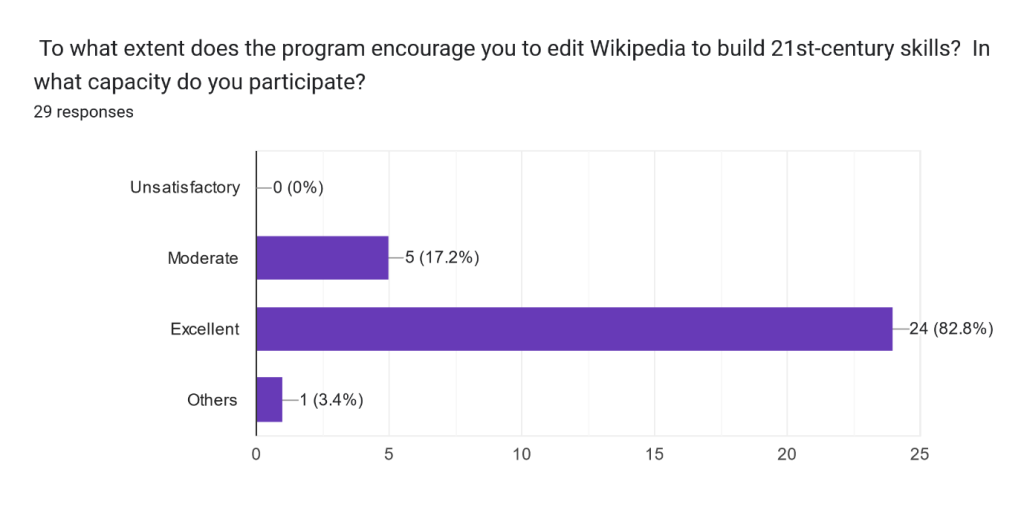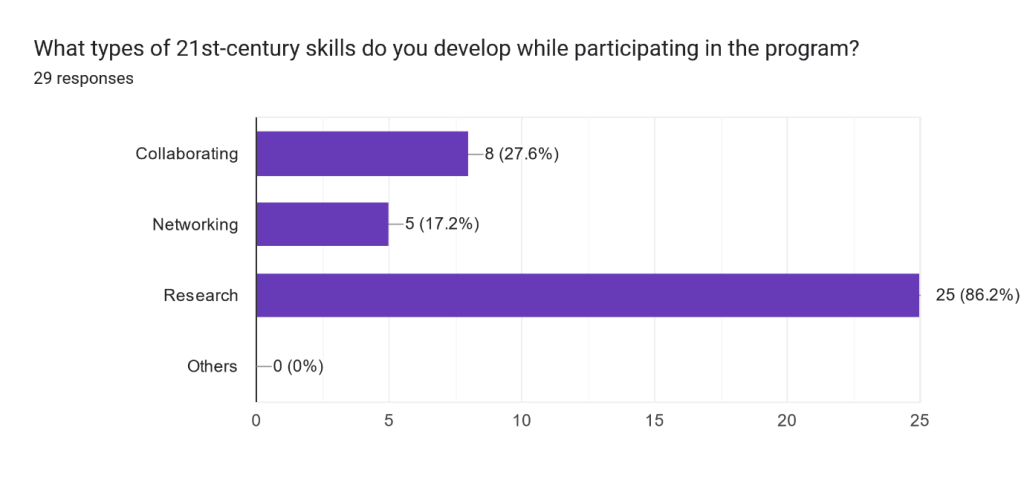As of 2023, there are 170 universities in Nigeria; 79 were private, federal universities amounted to 43, and state universities 48. Some of Nigeria’s oldest universities are the University of Ibadan, the University of Nigeria, the Obafemi Awolowo University, and the University of Lagos. According to a UNESCO report, One in every five of the world’s out-of-school children is in Nigeria. Even though primary education is officially free and compulsory, about 10.5 million of the country’s children aged 5-14 years still need to be in school.
Nigeria (known officially as the Federal Republic of Nigeria) is a country in West Africa with a population of over 230 million, comprising 36 states and the Federal Capital Territory, where the capital, Abuja, is located.
In 2016, the New Readers survey showed that 77% of Nigerians have not heard of Wikipedia in Nigeria. The narrative gave birth to the idea of Wiki Fan Clubs in Nigeria. The club is the first Wikipedia education program in the country. It involves club registration, formally as a unit in a tertiary institution in Nigeria. It allows students to gather within the confinement of their school to learn about Wikipedia and its sister project. The clubs are administered through their executive members, comprising undergraduate students and a staff advisor, who is supposed to be a staff member of the designated institution. We have established clubs at Lagos State University, Nigeria Institute of Journalism, Ekiti State University, Federal University of Technology, University of Ibadan, Kwara state university, University of Ilorin, and the Federal University of Agriculture. Abeokuta. Our team intends to situate clubs in all the interested institutions in Nigeria to spread awareness of Wikimedia projects in Nigeria. Our team is currently reviewing applications from potential institutions interested in the club at their university.
In 2023, the Wikimedia User Group Nigeria initiated the pilot edition of Wiki-in-school ( WIS) to address the need to involve Nigerian scholars in teaching and learning about Wikipedia and its sister projects and to facilitate their recruitment into the Wikimedia movement. The program also tends to develop and fine-tune the Lecturer-student relationship to encourage Nigerian students to learn 21st-century skills. The group started the program with public Calls for Applications from interested Nigerian Scholars and professionals. The program plan involves three-day in-person sessions for the mentors (lecturers), who will train selected students in one month of intensive training. The recruitment of the mentors (lecturers) was premised on the diversity and geopolitical dimensions of the country. Nigeria is regarded globally as one of the most diverse nations, with over 500 languages and 300 plus ethnic groups, and administered in six geopolitical zones: South South,South West, South East, North Central, and North East.
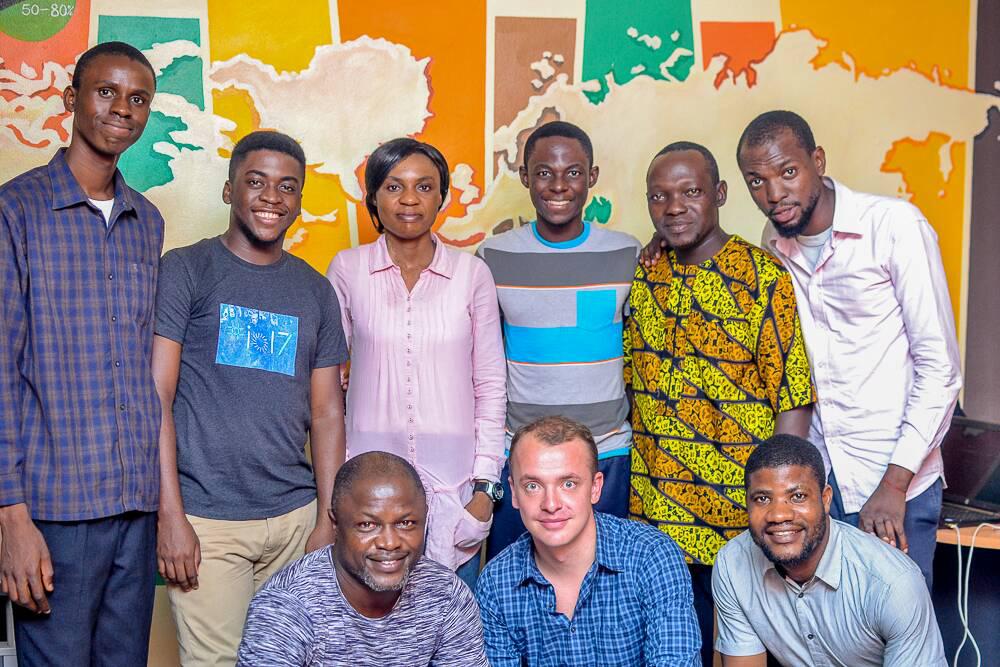
The exercise produced five(5) successful scholars who participated in a 3-day in-person program. The Mentors who participated in the program emerged from four higher institutions in Nigeria; Dr. Davinson Chuka Anyogu, University of Nigerian Nsukkka, Enugu, (South East), Joseph O. Osunmuyiwa MSc, MPH, (South West) Engr. Dr. Luqman Salati (FNSME, MNSE, MNMGS, MNIM), Kaduna State Polytechnic (North West), Gobir T. Mariam ( North Central), and Prof. Verla Andrew Wirnkor, Imo State University, (South East). At the end of the one-month training, we reviewed the project to understand how well to improve on the project.
Feedback from the survey
To understand the project the organizer asked the following question to understand the processes and procedures of the project;
- Participants were asked to indicate their locations: Out of the 29 people that participated in the program, 44.5% of the mentees were from Kwara state( North Central), 31% people located in Kaduna (North West), and 20% were from Nsukka, (South East) in Nigeria. Diagram (1)
- In what capacity do you participate in the program?: 5 people participated as mentors representing 17.2% of the total participants; 25 participants participated as students representing 86.2%. Diagram (2)
- To what extent does the program encourage you to edit Wikipedia to build 21st-century skills?
- Excellent: 82.8% (24) of the participants stated that the program encouraged them to edit Wikipedia.
- Moderate: 17.2% (5) participants stated that the program encouraged them to edit Wikipedia.
- Unsatisfactory: Zero
See Diagram (3)
- What 21st-century skills do you develop while participating in the program?
- Collaborating; 27.6%(8) of the students believe they were able to learn teaming skills from the program.
- Networking; 17.5%(5) participating students acquired networking skills from the program.
- Research: 86.2% (25) participating students learned research skills during the program.
- See Diagram (4)
- What else do you wish to tell us about the program?
Participants stated the following expectations
- Participants would like certificates of participation to be issued to them
- The program gave me a first-time opportunity to carry out a WIKI project.
- The training should be extended to 2 months instead of one month.
The General rule for program
- Mentors will undergo a three day intensive training
- Mentors know the program’s core objective: to train their students using Wikipedia to learn 21st-century skills.
- The Mentors are lecturers from Nigerian institutions.
- The Mentors will select students that will work with them on the project.
- The mentors need to organize at least three to four meet-ups before the end of the project life-cycle to guide their mentees on how to edit Wikipedia and its sister projects.
- Mentees are encouraged to create new and improved random Wikipedia articles.
- The mentor needs to assign specific articles to each of their mentees and encourage peer review of reports.
Activities review per Institution
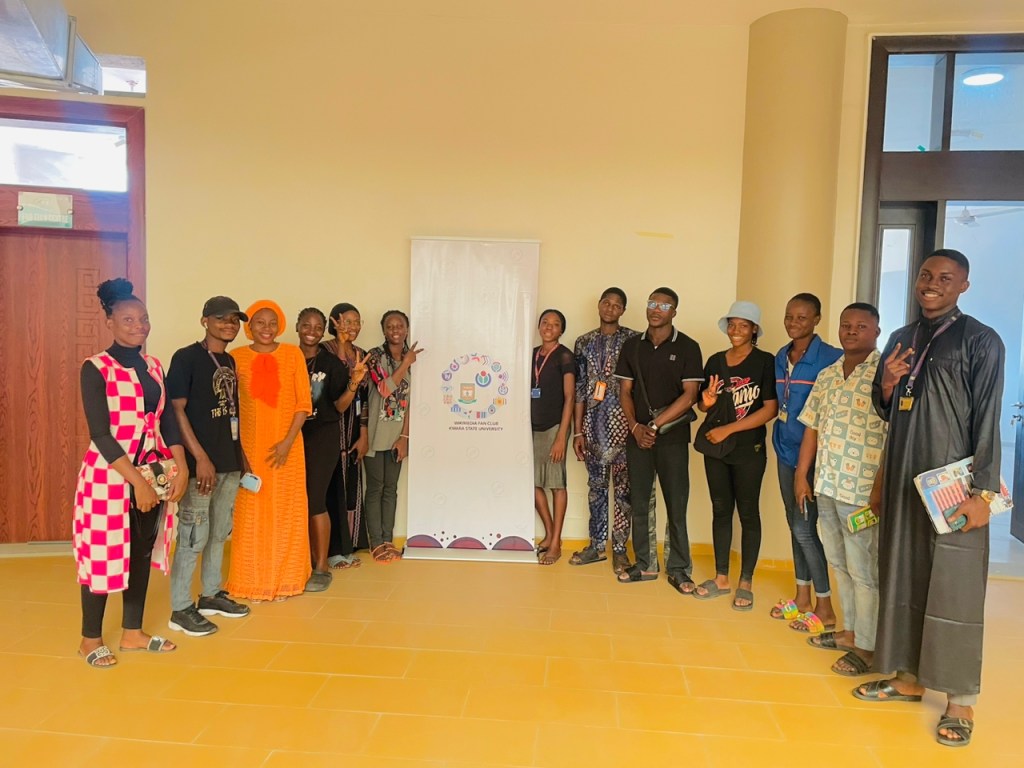
Methodological overview
We started the program by onboarding eight (8 )students to the Wikimedia outreach dashboard, and by our second meet-up, the number had increased to thirteen (13). The training activities occurred at the university campus, a virtual and in-person training hybrid. We opted for this model to cater to the time flexibility of the students that can not come for in-person training. At the same time, we provided data subsidies for the participant for editing Wikipedia during the training. The event took place in three different venues on the school premises based on the need of the task at hand. The program deployed Google meet for its virtual session. At the end of the program, we motivated the student by promising cash vouchers to the best three contributors.
- Editors: 14 Kwara State University undergraduate students were onboarded for the program.
- Peer review: 8 out of the 14 onboarded students engaged in peer review of the works of their colleagues. See the pictures
- Improved articles: 386 articles were edited
- New article: Only one article was created
- Word added: 6.45k words were added to Wikipedia.
- References added: 67 references were cited on Wikipedia.
- Article views: 804k
- Link to the dashboard: Metrics
Methodology overview
We adopted a simple random method of selecting students using my long year of experience as a teacher and understanding the potential of learning from my previous teacher-student encounters. We decided on the students based on their class performances, possession of working devices like laptops, gender, and availability during the period of the program. We started by briefing the students on the idea behind the contribution to Wikipedia and the program itself; the quest for technological advancement, research, and development. We focused on improving Wikipedia content on “Nigeria’s Mining Industry: The Past, Present and the Future in Focus.” To start the program, we divided the mentees into three categories, each with assigned articles for editing. We encouraged them to peer review published works among themselves for improvement. We encouraged the mentees by providing data subsidies and refreshments whenever we had to meet in the designated place.
- Editors: 7 undergraduates student of Kaduna State Polytechnic were onboarded for the program.
- Number of edits: 99 constructive edits were to Wikipedia
- Peer review: None
- Improved articles: 15 articles were improved
- New article: None
- Reference added: 24 references were cited on Wikpedia
- Article views: 30.4k views
- Word added: 3.67k words were added to Wikipedia.
- Image uploaded: 1
- Link to the dashboard: Metrics
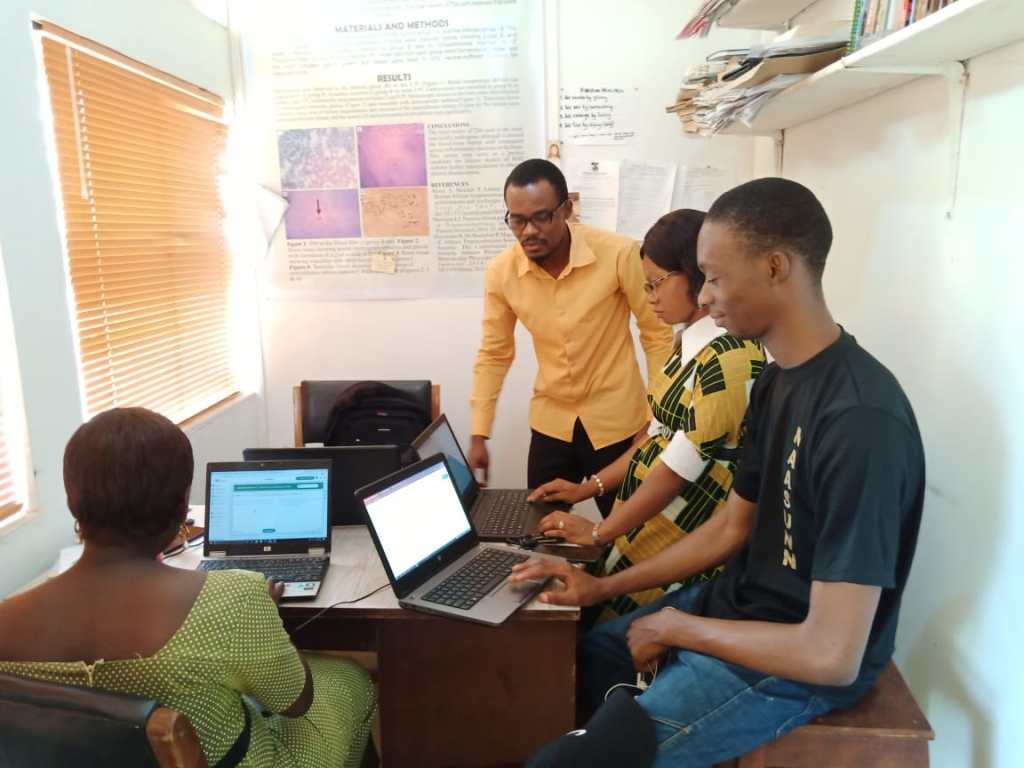
Methodology overview
The mentor worked with six selected Association of Veterinary Medical Students (AVMS) students at the University of Nigeria Nsukka. We recruited three males and three females from the association. We brought the students up to speed on the goals of this project. On Monday, 30th January 2023, the mentees have their first meet-up in my office. We re-iterated the key objectives and the expectation of the program among the participants. The same day, we created their Wikipedia user names using a meta link shared with the team, and we onboarded them to the Wikimedia outreach dashboard on 1st February 2023. On the same day, we assigned articles to the students for review, followed by intensive training on contributing to Wikipedia. We repeat this task three hours each from the 1st to the 3rd of February. After the session, the participants continued to visit my office for consultation and guidance on the assigned till the end of the program. Also, we provided refreshments and data supplied for each meet-up each time we had meet-up, while we provided data subsidies for each student for their edits.
- Editors: 7 undergraduates student of Kaduna State Polytechnic were onboarded for the program.
- Number of edits: 50 constructive edits were made on Wikipedia
- Peer review: Only one editor was assigned an article for review
- Improved articles:
- New article: None
- Reference added: 27 references were cited on Wikipedia
- Article views: 21.8kviews
- Word added: 4.22k words were added to Wikipedia.
- Image uploaded:
- Link to the dashboard: Metrics
Quantitative report

Can you help us translate this article?
In order for this article to reach as many people as possible we would like your help. Can you translate this article to get the message out?
Start translation
